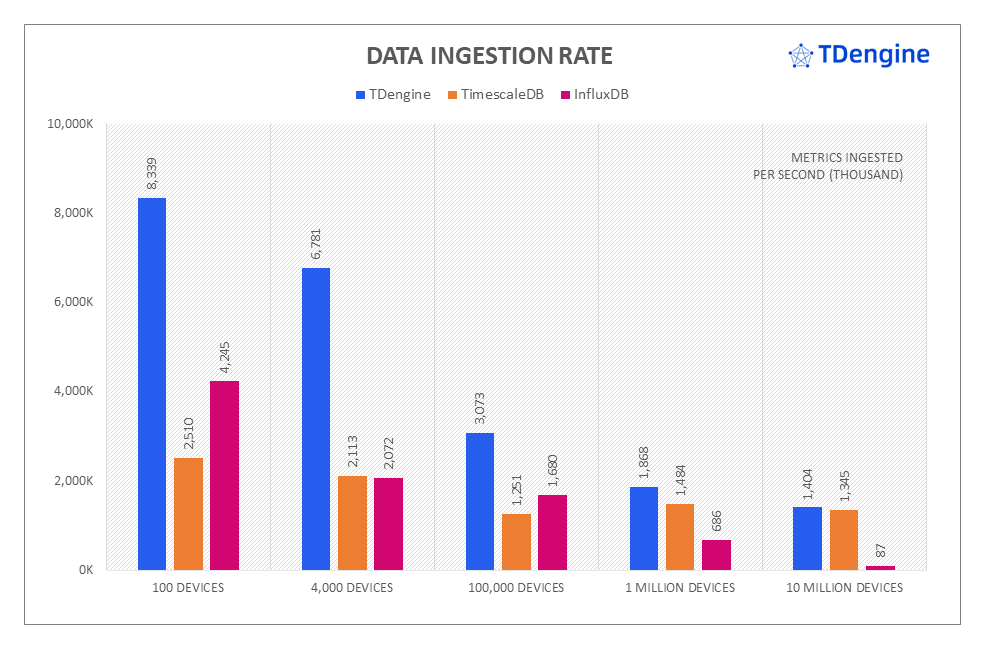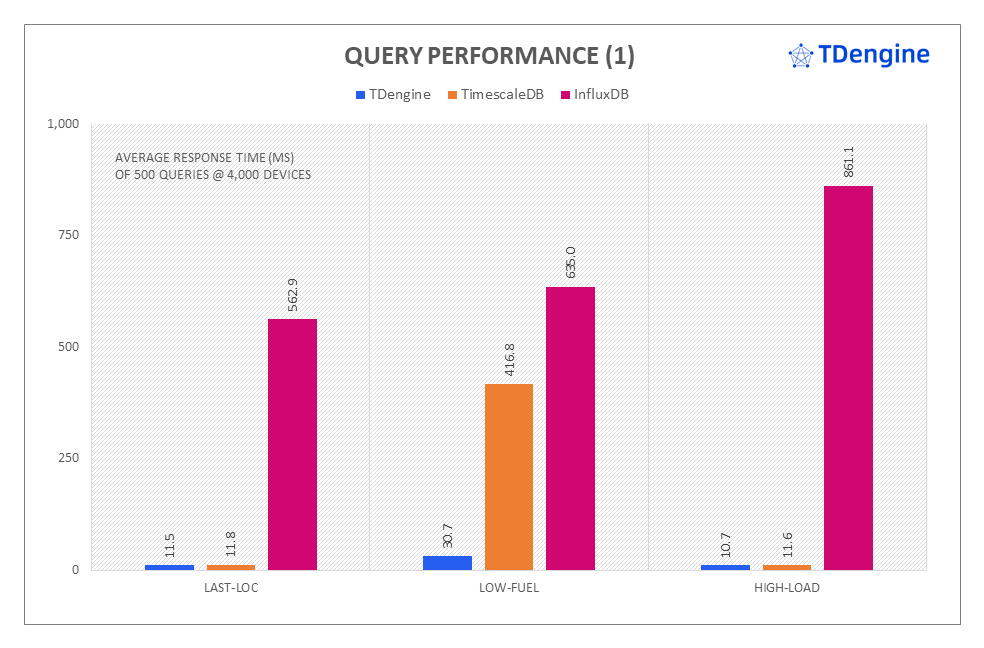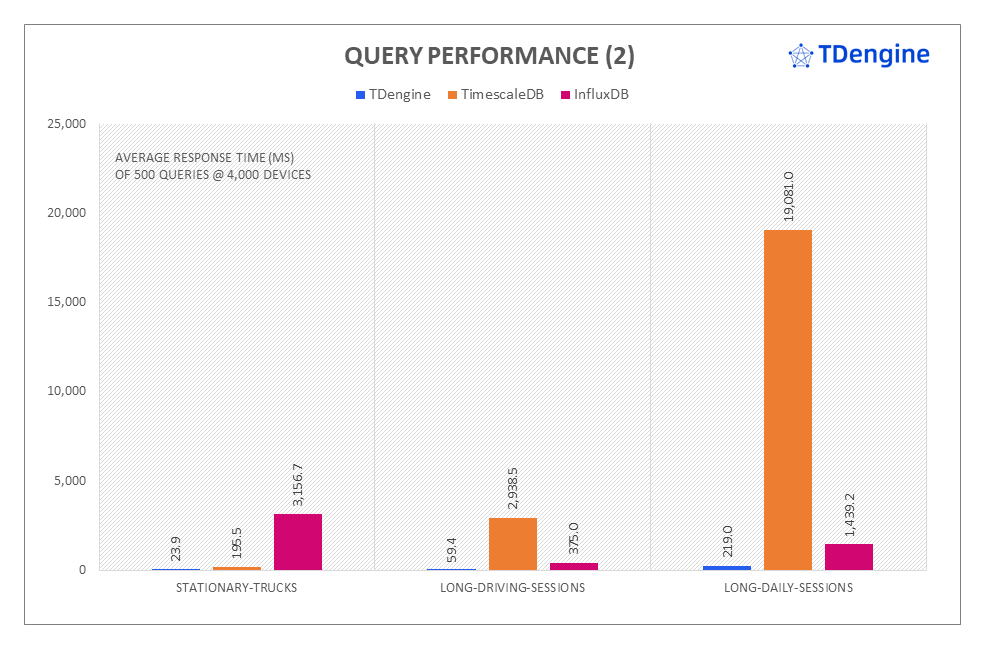The performance of your TSDB doesn’t just impact your ability to ingest, store, and analyze large amounts of data; it directly affects your total cost of ownership (TCO). Better ingestion rates, query response times and compression ratios mean your system consumes fewer resources to process the same amount of data. To demonstrate TDengine’s robust performance, we evaluated the platform against two key players in this space – InfluxDB and TimescaleDB – in an IoT scenario.
Performance Comparison
Ingestion Performance
Time series databases need to ingest massive amounts of data, and TDengine achieves the fastest ingestion speeds across all TSBS scenarios, ranging from 1.04 to 16 times the speed of the other products.

Resource Consumption
In addition, TDengine uses less processing power than InfluxDB or TimescaleDB to ingest the datasets. At its peak, InfluxDB’s CPU usage even reaches 100% during the ingestion process, while TDengine remains under 17%. Although TimescaleDB used a similar amount of CPU resources to TDengine, it spent far more time to compress and order the data after writing it to the database.

Query Performance
As performance can differ based on a number of factors, the TSBS framework covers a wide range of query types. TDengine provided the fastest query response across all scenarios, confirming that organizations dependent on real-time analytics are best served with this purpose-built platform.

More complex queries allowed TDengine to show off its processing power, reaching 87.1 times the performance of TimescaleDB in the long-daily-sessions scenario and 132 times the performance of InfluxDB in the stationary-trucks scenario. This demonstrates that TDengine is best prepared to handle the most performance-intensive queries without slowing down.

Disk Storage
In smaller-scale scenarios, all three database products took up a similar amount of disk space. When the datasets increased to one million or ten million devices, however, the benefits of TDengine’s storage design and architecture came into play; for large-scale datasets, TDengine uses less than half the storage resources that InfluxDB requires.
TimescaleDB had a significantly higher disk footprint in the two largest scenarios. The clearest example was in the ten million device scenario, where data processed by TimescaleDB occupied more than 12 times the disk space used by TDengine.

Conclusion
Across all key test metrics for ingestion, compression, and querying, TDengine clearly emerges as the highest-performing time series database.
- Ingestion: TDengine writes the test data between 1.04 to 3.3 times faster than TimescaleDB, and 1.8 to 16 times faster than InfluxDB, with significantly lower CPU overhead.
- Compression: Due to its efficient data storage and compression features, TDengine consumes up to 12 times less disk space than TimescaleDB, and 2.8 times less than InfluxDB.
- Queries: TDengine has the fastest query response time across all scenarios. For this use case, TDengine responds up to 13.6 times faster than TimescaleDB and up to 426 times faster than InfluxDB.
Purpose-Built Design
Unlike all-purpose databases like MySQL or PostgreSQL, TDengine was designed from the ground up to simplify and scale time series data management. The platform’s innovative storage engine makes full use of the unique characteristics of time series data, with novel concepts like a single table for each data collection point, which enables better ingestion, and data compression, and supertables, which speed up aggregation operations.
Best in Class TSDB
The performance advantages shown by this evaluation indicate that TDengine excels at time-series data processing, especially with larger datasets and more complex queries. TDengine also requires fewer resources, significantly reducing the TCO of data operations. These advantages, combined with its comprehensive feature set and ease of use, make TDengine the best option for growing enterprises to scale their data pipelines.




